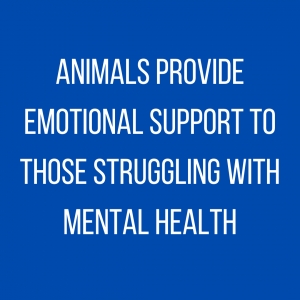Aubrie Holcomb
Contributor Writer
[email protected]
During the COVID-19 pandemic, UNC Asheville students are experiencing loneliness now more than ever before. Emotional support animals can provide support for anxiety, depression, and overall social isolation, according to Devon Gill, a UNCA senior.
“I was sick and tired of the isolation. I was tired of relying on myself to be okay. It was hard to adjust to an online system, and I think I was having more issues with my anxiety and my ability to manage my time well. I was feeling lonely, I just don’t want to be alone,” Gill said.
Gill adopted a 10-year-old emotional support dog named Ralphie in December. Ralphie is a toy poodle with a tongue that always sticks out.
“Not everyone wants a senior dog. There are a lot out there that want a home. They are older and they don’t have as much energy. I knew having a senior dog, they might want more cuddles and play time. They would want a little more love from me,” Gill said.
Ralphie provides comfort and companionship for Gill.
“I was looking for a dog who wants to cuddle me and sleep with me but doesn’t require a lot of outside attention. I really love animals, especially dogs,” Gill said.
The process of adopting and integrating an emotional support animal into a residence hall goes through a mental health professional and the Office of Academic Accessibility.
“I took my information to my therapist and she filled it out. I emailed it to the Office of Accessibility,” Gill said.
The Office of Academic Accessibility at UNCA gets the final say as to whether or not a student may have an emotional support animal in their dorm, according to Carolyn Ogburn, director of accessibility services at UNCA.
“Like any other student with a disability, they disclose that information to our office on our website. A student is sharing information about their disability, what accommodations they’ve had in the past,” Ogburn said.
In order to qualify to have an emotional support animal, or ESA, on campus, students must go through a mental health evaluation with a health provider, according to Ogburn, the director of accessibility services since 2017.
“I rely on professional assessment that students typically are working with mental health care providers who make that recommendation for an ESA based on their knowledge of the students disability and condition and they assess whether it is likely to result in substantial relief of one or more symptoms,” Ogburn said.
Not all animals qualify for emotional support. Although students may request any animal they would like, not all animals are logically placed in residence halls, according to Ogburn.
“We do look at considerations of space and considerations of species. We want to make sure that the animal can be determined safe for the campus. Like if somebody requested an emotional support pig, we’d have questions,” Ogburn said. “It’s not that they can’t ask, we would just have to have consideration for that. The other restriction with cats and dogs in particular is that they need to be spayed or neutered, they must be up to date with their shots, and they need to be at least one year old just for maturity level.”
While service animals are allowed to visit public places such as classrooms, emotional support animals are not, according to Ogburn.
“It is just resident halls. The academic buildings continue to be ‘no pets zones’. They become a regular pet once you leave the residence hall. They can go anywhere public people can bring their pets. If you can bring your dog on the quad that is fine, it doesn’t matter if it’s an ESA or not. But if an area is pet free, then you cannot bring your ESA there,” Ogburn said.
Emotional support animals are not the only type of animal to bring relief. Therapy dogs may also come to college campuses to bring relief. But, there are some key differences between the two said Katie Weiber, head dog trainer at Appalachian Dog Training.
“The main difference is who they serve and training requirements. The ESA has no training requirements and no public access rights, only the rights in housing, and very recently, airlines stopped the access for ESA animals on flights,” Weibel said. “An ESA is for one person. A therapy dog serves many people and can get permission to go such as the nursing home, children’s home, hospital. But it does not have public access rights, so cannot go grocery shopping.”
Therapy dogs can also be beneficial for those going through some sort of crisis, according to Weibel.
“Last year Hendersonville lost a sanitation worker on the job, and so one of our therapy dogs was requested to be there. So we went into the group, there were 50 men or so and they were all being debriefed after this had happened,” Weibel said. “Another crisis thing is sieving the first responders themselves because they face adversity every day and they lose even their own members so that where she can go in in an event like that.”
Categories:
Animals provide emotional support to those struggling with mental health
February 28, 2021
0
More to Discover


![Brooke Pedersen [second from the right] and Luis Reyes [right] hold banners during the Wrap The Woods event.](https://thebluebanner.net/wp-content/uploads/2025/09/ELIZABETH_PRITCHITT_IMG_3470-1200x804.jpg)
















